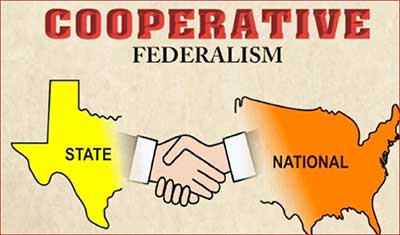Date: 01/12/2022
Relevance: GS-2: Indian Constitution—Historical Underpinnings, Evolution, Features, Amendments, Significant Provisions, and Basic Structure.
Key Phrases: Article 345, Article 348, Article 351, Eighth Schedule, Official Languages Act of 1963, Committee on official language, cultural chauvinism, cultural nationalism.
Why in News?
- The latest effort to impose Hindi raises once again and quite retrogressively the issue of cultural nationalism at a time when it is least required.
Major provisions regarding languages:
- Article 345 leaves it to the State to choose its language for official purposes. In actual practice, several States and Union Territories continue to use English.
- Article 348 stipulates that all proceedings of the Supreme Court and ‘of every High Court’ and of Bills, etc. in Parliament shall be in the English language.
- The Eighth Schedule and the periodic additions to it (now numbering 22) spell out the diversity and complexity of the language landscape as do the Official Languages Act of 1963 and its Rules made in 1976 and amended in 1987, 2007, and 2011.
- Article 351 directs the state, in the development of Hindi, to draw upon other languages in the composite culture of India. These include Hindustani which does not find a mention in the Eighth Schedule.
- As per Article 343(1) of the Constitution of India, Hindi in Devanagari script shall be the official language of the Union.
- The Official Language Act, 1963 provides under Section 7 that the use of Hindi or the official language of a State in addition to the English language may be authorized, with the consent of the President of India, by the Governor of the State for the purpose of judgments, decrees, etc. made by the High Court for that State.
Committee on official language:
- Statute:
- The Committee of Parliament on Official Languages was set up in 1976 under Section 4 of The Official Languages Act, of 1963.
- Section 4 of the Act says “there shall be constituted a Committee on Official language, on a resolution to that effect being moved in either House of Parliament with the previous sanction of the President and passed by both Houses”.
- Members:
- The Committee is chaired by the Union Home Minister, and has, in accordance with the provisions of the 1963 Act, 30 members — 20 MPs from Lok Sabha and 10 MPs from Rajya Sabha.
- Objective:
- The job of the Committee is to review the progress made in the use of Hindi for official purposes and to make recommendations to increase the use of Hindi in official communications.
- Reports:
- The 10th and 11th reports have been submitted to the President and are not in the public domain.
Some of the recommendations under the 11th Report:
- Hindi should be the medium of instruction in IITs, IIMs, and central universities in the Hindi-speaking states.
- The language used for communication in the administration should be Hindi, and efforts should be made to teach the curriculum in Hindi, but the latter is not mandatory.
- Hindi should replace English as the language of examinations for recruitment to the government.
Concern:
- Nowhere in it was the suggestion that diversity, including linguistic diversity, is to be subsumed in linguistic uniformity.
- Once Hindi replaces English, the language used in the examination for recruitment to the all-India services will be Hindi alone. Therefore, candidates from the non-Hindi States, the south, in particular, will face a great disadvantage when compared to those whose mother tongue is Hindi. The result would be a gradual elimination of candidates from the non-Hindi region from All India services.
The ‘national language’ issue:
- The allegation of ‘cultural chauvinism’ emanates from the apprehension that the transition from English along with Hindi as the Official Language of the Union to it being the national language and bring it about through such procedural devices such as the language of instruction and examination and of textbooks to the detriment of students whose mother tongue is not Hindi. Its implications for competitiveness in the job market are evident.
- It is to be recalled that the language of the chapter on Official Language is definitive and limits itself to the language of the Union. It does not mention a national language.
- There is no mention of it in the section on Directive Principles of State Policy or Fundamental Duties.
- In fact, Article 344(3) stipulates that ‘the just claims and interests of persons belonging to the non-Hindi speaking areas regarding the public services’ shall be considered by the President.
Opinion of Critics:
- Kerala and Tamil Nadu have called for equal treatment to all the languages specified under the Eighth Schedule of the Constitution.
- The Kerala Chief Minister has specifically stated that question papers for competitive examinations should be prepared in all languages while his Tamil Nadu counterpart has urged the Centre to promote all languages and keep open the avenues of progress in terms of education and employment equal to speakers of all languages.
Conclusion:
- The policymakers should seriously think of making the provision constitutionally that Hindi and English should be the official languages of the Union.
- As all languages are equally important to protect the diversity of India, therefore, all efforts should be made to ensure their natural development so as to be able to meet the requirements of modern science and technology.
- At the same time, we need English to better understand science and the world around us and beyond.
Source: The Hindu
Mains Question:
Q. “The Indian Union is an agglomeration of ethnolinguistic nationalities that have their own languages and cultures.” Discuss the statement in light of the debate over the imposition of Hindi on the states.








